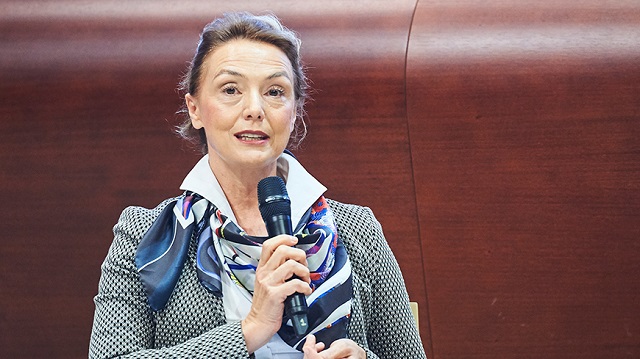Statement by Marija Pejčinović Burić, Secretary General of the Council of Europe
To mark the UN International Day for the Elimination of Violence against Women, the Secretary General stresses the need to learn lessons from the first lockdowns this past spring, to face increasing calls to domestic violence hotlines since new restrictions have been put into place in much of Europe. In an article published today, she also addresses increasing online forms of sexual harassment, such as stalking and sexting, as more people stay online at home.
The first COVID-19 lockdowns this past spring led to many Council of Europe member states reporting record increases in domestic abuse. Although current lockdowns in most countries are less restrictive by comparison, national domestic violence hotlines again are reporting dramatic increases in distress calls.
And as people stay indoors and online longer because of renewed lockdowns, we learn of increased sexual harassment, stalking, sexting, deep fake imagery and other forms of “online violence” as a result, according to a recent UN Women study.
One of our most significant international treaties, the Council of Europe Convention on preventing and combating violence against women and domestic violence (Istanbul Convention) calls for specific measures against such violence, such as 24-hour hotlines and counselling services, access to shelters for victims, restraining and protection orders and swift police interventions.
Read also
As we mark the UN International Day for the Elimination of Violence against Women in the midst of an enduring pandemic, lockdowns have proven to be a unique challenge for all of the above. We need to ensure that renewed restrictions on movement do not cause more harm to women and children. But steps can be taken to ensure that the home does not become a place of fear again.
Effective measures to prevent violence against women must be a key part of renewed lockdowns. Continued and safe access to support services such as shelters must be ensured as “essential”. Support services offer online services, from psychological counselling to online application forms for protection orders.
Creative solutions that have worked in some countries earlier this year, from rail-to-refuge schemes allowing victims free travel to support services, or information provided to victims of domestic violence by local pharmacies that are open during lockdowns, should be encouraged and adapted to lessons learnt from the spring.
If not already carried out, police officers and health professionals should be given guidelines to both identify and help victims of domestic abuse, for example by pro-actively reaching out to women who have sought help before. Access to legal assistance and judicial remedies for women and girls at risk must be maintained.
Even before the pandemic struck, women and girls with disabilities, of migrant origin, without a permanent home or from ethnic, religious or language minorities often had difficulties accessing information on available support and protection. We need to ensure that their needs are addressed during the pandemic.
The surge in gender-based violence during the spring lockdowns propelled this issue onto the political agenda in many of our member states. We call on those states that have not yet done so to turn this heightened awareness into action by ratifying and implementing our Istanbul Convention. With monitoring by the Group of Experts on Action against Violence against Women (GREVIO), we better ensure that states party to the Convention follow its guidelines.
Restrictions of movement, financial constraints and uncertainty cannot be allowed to embolden perpetrators – whether at home or online. For all such forms of violence, we must maintain zero tolerance.
Council of Europe

























































